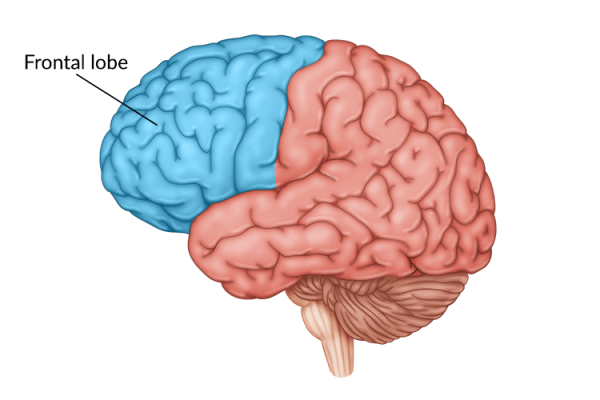One stage survivors may experience in the recovery process after brain injury is post-traumatic amnesia. During this stage, survivors may struggle with memory and exhibit uncharacteristic behaviors, or they may pass through this phase so quickly that they do not experience any symptoms at all.
When a survivor does experience symptoms, it’s important to understand that it’s a sign of recovery and the phase will eventually pass.
This article will discuss how to identify the signs of post-traumatic amnesia and how to help your loved one overcome the challenges of amnesia after brain injury.
What Causes Amnesia After Brain Injury?
Amnesia is the loss of memory. It can inhibits the formation of new memories and/or the recollection of old ones. When amnesia occurs after a concussion or brain injury it is referred to as post-traumatic amnesia.
Several regions of the brain are involved in the process of memory including the amygdala, hippocampus, cerebellum, and prefrontal cortex. Damage to one or more of these areas can often result in post-traumatic amnesia.
Post-traumatic amnesia typically occurs after a survivor wakes up from a coma, a period of unconsciousness. During this time the survivor may not be able to recall certain memories. This can last from a few minutes to a couple weeks, depending on the severity of the brain injury. It’s important to understand this is an early stage of recovery in which the brain is healing.
Post-traumatic amnesia can be broken down into several different types:
- Anterograde amnesia. This means a survivor cannot remember new information provided like a conversation they just had. However, they can often remember data and events that occurred before the brain injury.
- Retrograde amnesia. This type of amnesia causes a person to forget events that occurred prior to their injury, opposite of anterograde. However, a survivor can often create new memories. Sometimes both anterograde and retrograde amnesia can occur together after brain injury.
- Dissociative amnesia. Though more rare, this type of amnesia can cause a survivor to not only forget their memories but also their identity. They may not recognize their own reflection in the mirror. This most often occurs after severe traumatic events, but luckily as survivors recover they begin to remember themselves.
Post-traumatic amnesia can invoke confusion and frustration in survivors because they have difficulty remembering where they are, how they got there, or any new information since the injury.
Signs and Symptoms of Post-Traumatic Amnesia
Every brain injury is different and therefore the effects are also different. Survivors with post-traumatic amnesia may experience many of the following symptoms such as:
- Memory loss
- Confusion and disorientation
- Agitation and distress
- Aggressive behaviors
- Inability to recognize loved ones
- Childlike and clingy behavior
Post-traumatic amnesia after brain injury can cloud the ability to distinguish right from wrong in social or emotional situations. Because this is due to the affected areas of the brain responsible for self-regulation and control, survivors may struggle with controlling their actions.
It can be difficult to see your loved one in this state and not as their usual self. However, it can help to remember that post-traumatic amnesia is almost always temporary and a step in the recovery process.
How Long Can Post-Traumatic Amnesia Last?
Anterograde amnesia is the most common type of amnesia survivors experience after a brain injury. The presence and duration of anterograde amnesia is one of the best predictors of brain injury outcome.
There is no exact time frame indicating how long a survivor will experience post-traumatic amnesia. However, generally speaking, the amount of time can sometimes determine the severity of a survivor’s brain injury.
For example, some survivors may experience post-traumatic amnesia for weeks or in rare cases, months. This is usually an indication of more severe trauma.
Other survivors may only experience post-traumatic amnesia for a couple days, hours, or even minutes after sustaining a brain injury, indicating mild trauma. When this is the case, it can sometimes increase the cognitive effects that a survivor may experience.
While there is uncertainty with post-traumatic amnesia, it helps to know that it’s a stage of recovery and most survivors will pass through it in time.
How to Help Navigate Amnesia After Brain Injury
Although post-traumatic amnesia is a stage most survivors go through during their recovery, it can be a concerning time for friends and family.
Here are some tips to help you interact safely with a loved one experiencing amnesia after brain injury:
- Identify yourself. As you enter a room be sure to say your name and who you are. This can help prevent survivors from becoming irritated or confused. When you re-enter a room, even if you only left for a few seconds, make sure to remind them again who you are.
- Ask before making physical contact. Survivors tend to be hypersensitive to stimulation within the first few days after waking up from a coma. Because of this, survivors may not want to be touched or comforted. Always ask beforehand if you can hold their hand or give them a hug, and respect their wishes.
- Stay calm. Try to remain as calm as possible. When survivors see others in distress it can add to their own confusion and make the situation worse.
- Be patient. The survivor may ask lots of questions or even the same question multiple times. Try not to force them to remember anything or correct them from their own thoughts or beliefs.
- Allow time for yourself. As a caregiver, friend, or family member it’s important to give yourself time to rest and allow yourself breaks. This can help you recharge and have more energy to support the survivor.
Additionally, it can be really helpful for both you and the survivor to remain in a quiet and peaceful environment as much as possible. This can reduce the risk of harm and create a safe space for recovery.
Overcoming Post-Traumatic Amnesia
Post-traumatic amnesia is a common stage after a brain injury where the survivor struggles with memory, especially when emerging from a coma. Signs of post-traumatic amnesia can include confusion, impaired memory, and unusual behavior. While it can be concerning, this is actually a phase in which the brain is healing.
Remember that survivors are not fully aware of their actions during this stage, so try not to take any action or words personally. As time passes and the brain heals, survivors can pass through this stage and overcome post-traumatic amnesia.










